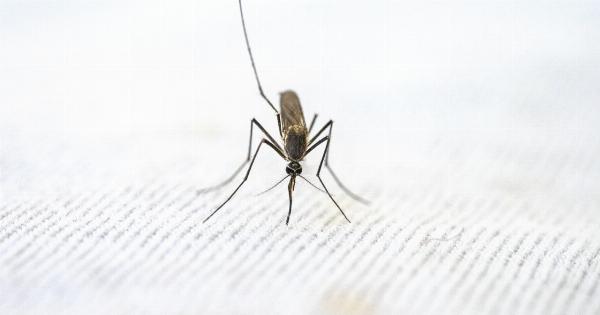Measles is a highly contagious viral disease that can lead to serious complications and even death in certain cases.
While vaccines have significantly reduced the prevalence of measles in many parts of the world, the disease remains a problem in areas where vaccination rates are low or where conflicts and crises prevent access to healthcare services. According to a recent report from the United Nations Children’s Fund (UNICEF), measles is making a comeback, and it poses a serious threat to children’s health and well-being worldwide.
The Elephant in the Room
The primary reason for the resurgence of measles is the refusal of some parents to vaccinate their children.
The anti-vaccine movement is fueled by misinformation and conspiracy theories that claim vaccines are dangerous or ineffective, or that they are part of a sinister plot by the government or pharmaceutical companies to control people’s minds and bodies. These views are not supported by scientific evidence, and they ignore the overwhelming consensus among health experts that vaccines are the safest and most effective way to prevent infectious diseases such as measles.
Moreover, the anti-vaccine movement has a ripple effect that goes beyond the individuals who choose not to vaccinate.
When vaccination rates fall below a certain threshold, herd immunity is compromised, which means that the disease can spread more easily among the population, including those who are too young, too old, or too sick to receive vaccines. This puts everyone at risk, including those who have been vaccinated, as no vaccine is 100% effective.
The Global Picture
In 2020, measles cases increased by nearly 50% worldwide, according to the WHO.
The largest outbreaks were reported in countries such as the Democratic Republic of the Congo, Madagascar, and Ukraine, where health systems are weak and vaccination rates are low. However, even developed countries such as the United States and France had their share of measles cases, mostly due to pockets of unvaccinated individuals.
In some cases, measles was imported from other countries with higher prevalence, highlighting the need for global cooperation and coordination to prevent and control the spread of infectious diseases.
Children are the most vulnerable to measles, as their immune systems are not fully developed and their bodies are more prone to complications such as pneumonia, brain damage, blindness, and even death.
According to the WHO, measles caused an estimated 207,500 deaths globally in 2019, most of them among children under five years old. This is a tragic toll that could be prevented if more children were vaccinated on time and on schedule.
The Role of Vaccines
Vaccines have been one of the greatest public health achievements of the 20th century, saving millions of lives and preventing countless cases of disability and suffering.
The measles vaccine is a safe and effective tool that has been used for over 50 years, with a track record of success in reducing measles cases and deaths worldwide. The vaccine is typically given in two doses, the first at 12 to 15 months of age, and the second at 4 to 6 years of age, although the schedule may vary depending on the country or the individual’s health status.
The measles vaccine is a live attenuated vaccine, meaning it contains a weakened form of the virus that cannot cause disease in healthy people.
When the vaccine is administered, the body’s immune system responds by producing protective antibodies against the virus, which can then recognize and neutralize the real virus if it enters the body later. This creates immunity to measles, which can last for many years and may even provide some cross-protection against other viral diseases.
The Way Forward
The fight against measles requires a multi-faceted approach that involves not only vaccination but also surveillance, outbreak response, and public education.
UNICEF and its partners are working to increase vaccination coverage, particularly in the most affected countries, by providing vaccines, training healthcare workers, and supporting community engagement and demand for vaccination. UNICEF also supports routine immunization programs and the integration of measles vaccination into health systems in order to reach all children, regardless of their location or background.
However, ending the measles epidemic also requires political will and investment from governments, as well as collaboration among countries and stakeholders.
This includes strengthening health systems, increasing funding for vaccine research and development, and addressing the social, economic, and cultural factors that may hinder vaccination uptake or access. It also means confronting the spread of misinformation and promoting evidence-based information about vaccines and their benefits.
The Bottom Line
Measles is a preventable and treatable disease that should not threaten lives and health in the 21st century.
The fact that it persists and even flourishes in some parts of the world is a sign that there is still much work to be done in terms of vaccine equity, health equity, and global solidarity.
UNICEF’s warning about the serious threat from measles should be taken seriously by all those who care about children’s health and well-being, and who recognize the importance of vaccines in shaping a healthier and more just world for everyone.































